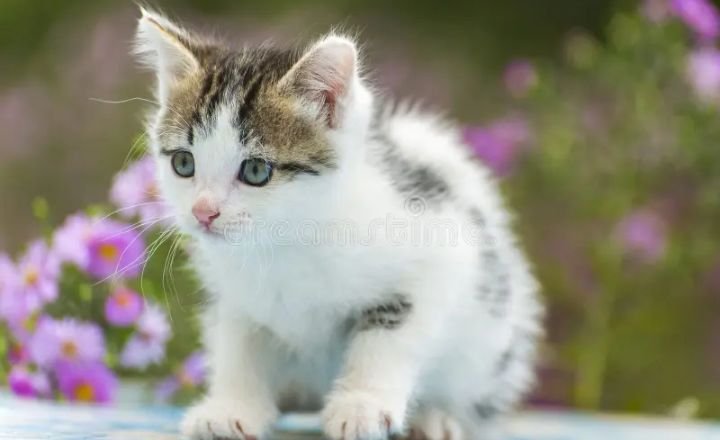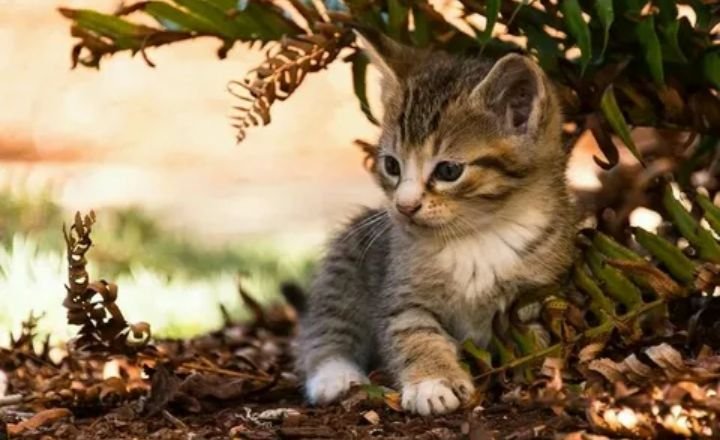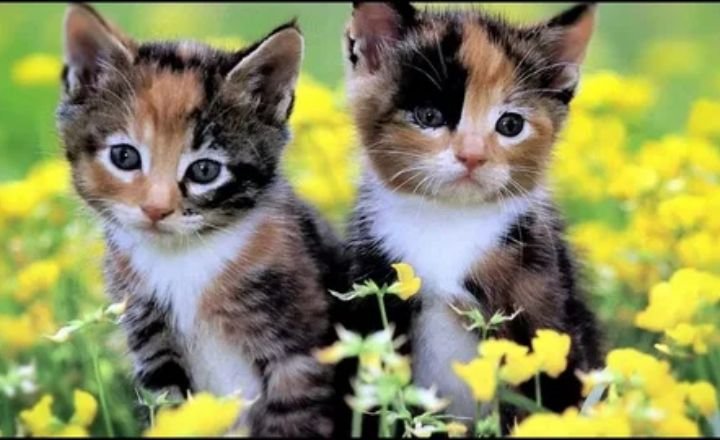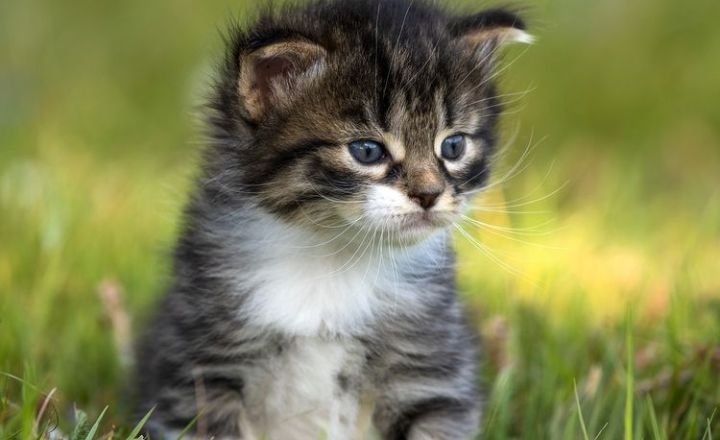Cats and kittens bring joy, companionship, and a sprinkle of mischief into our lives. Before you rush out to adopt or purchase one of these adorable creatures, it’s essential to consider the financial commitment involved from food and litter to veterinary care and potential pet insurance.
How much does a cat or kitten cost? This varies widely based on factors such as breed, age, and lifestyle choices. Initial costs can start at around $405 for that cute little ball and expenses can quickly add up over the years averaging around $340 annually after those first twelve months.
Planning for a New Cat or Kitten
Planning for a new cat or kitten, it’s essential to understand that the costs can vary significantly depending on various factors. Adoption fees from shelters might range from as low as $50 to several hundred dollars at specialty breeders, reflecting not only the pet’s lineage but also their medical history and socialization.
Beyond initial adoption costs, prospective pet owners must consider ongoing expenses such as food, litter, toys, and routine veterinary care. This means that even a low-cost pet can quickly escalate in yearly upkeep.
Cat Cost Estimates
Adoption Fee
Owning a cat can be one of life’s most rewarding experiences, but understanding the financial commitment is crucial. Specifically, consider the unique cost structure some setups offer: the first-year expenses may be sponsored at zero dollars.

After that first year, you’ll need to plan for ongoing care and maintenance of approximately $200 annually—or even more—depending on your cat’s specific needs and lifestyle choices.
Veterinary Care and Vaccines
When bringing a feline friend into your life, it’s essential to factor in the costs associated with veterinary care and vaccinations. In the first year, you can expect to spend around $110 to $550 on these essentials, which may seem daunting for new cat owners.
Routine check-ups, initial vaccinations, and preventive treatments help catch potential issues early and set up your cat for a healthy life. The cost of veterinary care tends to stabilize in subsequent years at about the same price point—$110 to $550 annually.
Flea/Tick Prevention
One often overlooks the financial implications of flea and tick prevention, which can fluctuate dramatically. In the first year alone, pet parents may face costs ranging from $20 to $200 depending on factors such as the treatment type and local infestation severity.
It’s easy to view these preventative measures as mere costs, think of them as essential components of overall wellness for your cat. Each subsequent year typically carries a similar price range—$20 to $200—but this predictable expense fosters a budgeting strategy that many find manageable.
Cat Food
When many first-time animal like dog and cat owners are surprised at the food expense. In the first year alone, you might find yourself laying out about $120–500 due to initial setup costs and vet visits that often accompany bringing a pet into your home.
In the following years, you’ll likely see food expenses settle around $120–500 annually. While this figure may seem stable, it opens up interesting conversations about shifts in spending priorities as your cat ages.

Cat Treats
The initial treats expense in the first year can set you back about $10–100, which may seem staggering at first glance. It encompasses everything from essential veterinary care to those delightful toys and gourmet catnip-infused treats that keep your kitty entertained.
Each subsequent year mirrors this hefty investment with an estimated expense of $10–100 as well. This consistency means you’re not just paying for maintenance; you’re actively investing in the happiness and health of your furry friend.
Cat Food and Water Bowls
Cat cost estimates, small expenses like food and water bowls. The initial splurge of approximately $5–30 for a decent set. These bowls serve as more than just functional items; they become a part of your cat’s daily routine and can influence their overall health.
Investing in high-quality materials can prevent issues such as bacteria buildup or potential spills that lead to messy situations. Though the first year sees minimal costs associated with feeding tools, subsequent years may introduce unseen expenses related to upkeep and replacements, especially if you opt for ceramic or stainless steel over plastic.
Cat Litter Box
The cost of maintaining a cat’s litter box is no exception. In the first year, you could be looking at an estimated expense of around $10–200.this includes not just purchasing the litter box itself but also recurring expenses like premium cat litter and waste disposal services.
Many new cat owners may underestimate these initial costs, viewing them as a small part of overall pet ownership without realizing how quickly they accumulate. As you move past that initial investment, you’ll find that each subsequent year averages about $10–100.
Cat Litter
The first year typically incurs costs around $70 to $150 for essentials such as vaccinations, spaying or neutering, and basic supplies like litter boxes and scratching posts. In subsequent years, cat cost estimates remain consistent at around $70 to $150 annually.

Cat Bed
Investing in a cozy expense cat bed for your feline friend. a one-time cost of just $20 for the first year, bringing blissful naps and playful antics into your home., as whimsical as it sounds, pet ownership is a journey defined by hidden costs.
Following that initial investment, you may find yourself allocating an average of $100 each year to maintain both comfort and hygiene—think replacements and cleaning supplies to keep that beloved cat bed fresh.
Cat Carrier
With an initial expense carrier fee of $20 in the first year, this minor investment covers essential costs related to health and safety, ensuring that your new feline companion is properly equipped for life with you.
As time progresses, cat cost estimates reveal a recurring expense of just $0 to 75 each year following that initial outlay. This seems minimal on the surface, it highlights the importance of looking beyond immediate financial commitments and recognizing long-term responsibilities.
Toys and Scratching Post
The cost of toys and cat scratching posts are essential for mental stimulation and physical health. In the first year, investing in quality cat toys and a durable scratching post can set you back around $50.
These items play a crucial role in your cat’s well-being by promoting exercise and satisfying their natural instincts to scratch. Cat toy expenses significantly decline after the first year, averaging only $20 annually thereafter.
Budgeting for the Cost of a Cat or Kitten
bringing a cat or kitten into your home, it’s essential to move beyond the initial adoption fee and delve into a comprehensive budgeting strategy. Think about long-term essentials such as food, litter, and regular vet visits for vaccinations and health check-ups.
It’s wise to set aside funds for unexpected emergencies too—those surprise trips to the vet can range from routine procedures to unforeseen illnesses. Consider investing in preventative care and quality supplies from the start. Here are a few simple tips:

Think Adoption First
Thinking about adoption first when budgeting for the cost of a cat or kitten, potential adopters should consider that most shelters and breed-specific rescues often cover essential expenses like initial health exams and vaccinations within their adoption fees.
This can significantly reduce the upfront costs compared to purchasing from breeders, who typically do not include these vital services in their prices.Local shelters can lead you to discover cats and kittens that perfectly match your lifestyle while saving money.
Be on the Ball with Veterinary Care
Routine visits not only help catch health issues early but can also prevent costly emergency treatments down the line. Establishing a regular schedule with your veterinarian ensures that your furry friend stays up-to-date on vaccines, which are critical for preventing serious illnesses
Pet insurance can be a game-changer in managing these costs, allowing you to choose plans ranging from just $10 to $40 per month—an investment that could save thousands in unexpected health crises.
Keep it Basic
Instead of splurging on extravagant accessories like fancy collars or high-tech self-cleaning litter boxes, consider sticking to the essentials that cater to your furry friend’s basic needs.
Feeding your cat doesn’t require stainless steel dishes when plain ceramic or plastic bowls get the job done just as effectively.
Other Cat & Kitten Expenses to Consider
When it comes to the cost of a cat, it’s essential to account for unexpected expenses like emergency veterinary care. Even with regular check-ups and vaccinations, unforeseen health issues can arise, and treatment costs can escalate quickly. Convenience of pet sitting or boarding fees during travel.
Professional grooming is another expense many first-time cat owners overlook; certain breeds require regular grooming sessions not just for aesthetics but also to maintain their overall health. Incorporating these potential costs into your budget fosters responsible ownership.
Conclusion
You choose a cat or a kitten, it’s essential to consider the associated costs carefully. While kittens may come with initial expenses such as vaccinations and spaying/neutering, adult cats can have their own set of financial requirements, including potential medical issues and ongoing care.
How Much Does a Cat or Kitten Cost? your decision should align with your budget and lifestyle. Adopting a pet is not just about the upfront cost; it’s about the long-term commitment and love you can provide.
FAQS
What is the average cost of adopting a cat?
The average cost of adopting a cat ranges from $50 to $150, depending on the shelter and location.
Are kittens more expensive than adult cats?
Generally, yes. Kittens can cost between $100 to $200 due to their demand and additional vaccinations.
What additional costs should I consider when adopting a cat or kitten?
In addition to adoption fees, consider expenses for food, litter, toys, grooming, and regular veterinary care.